Amina Kaskar
Rothwell Chair Postdoctoral Associate
- Soft Architecture
- Africa-Asia: A new Axis of Knowledge Conference
- Garage Seminar #2
- Rothwell Travel Elective and Fieldwork Trip
- JAE Design Essay Award
- LUSI Dissertation Award
Soft Architecture: Workshop & Public Lecture (5 May & 13 August 2025)
Amid ongoing violence, displacement, and cultural instability, there is an urgent need to rethink architecture as a tool for destruction and erasure. This work advocates for a transformative shift by drawing on the material and spatial practices of migrants. Migrants often create soft architectures—temporary, inter-scalar spaces—that resist restrictive systems and offer opportunities for reclamation and agency within exclusionary environments. Soft architecture is embodied in the objects and knowledge migrants carry with them as they build their homes. These practices engage with micro-transactions and community organisations, fostering spaces where cultural and social production thrive. Within the South African Indian diaspora, these practices are tangible through the tactility of plants, food, and textiles.
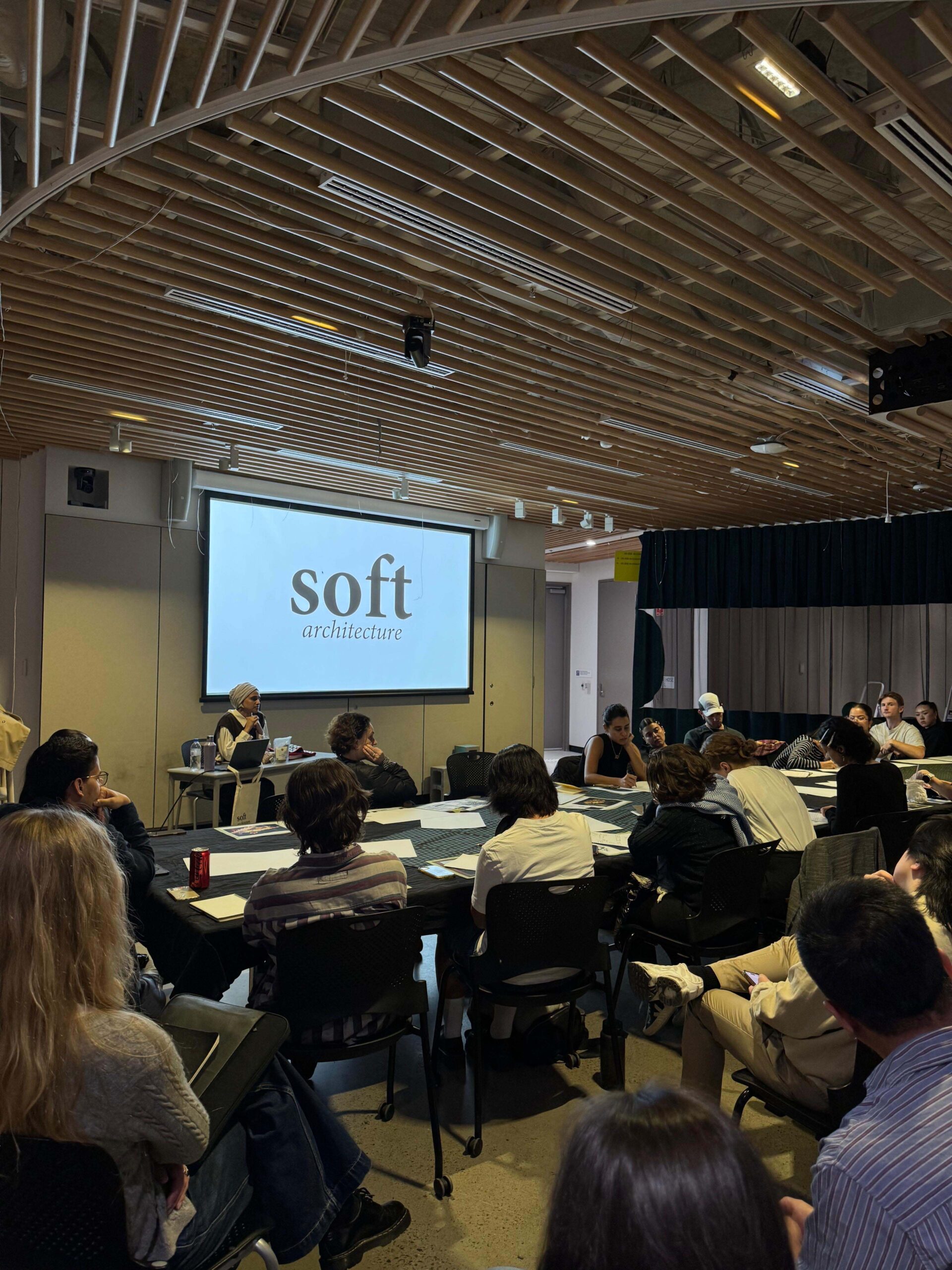
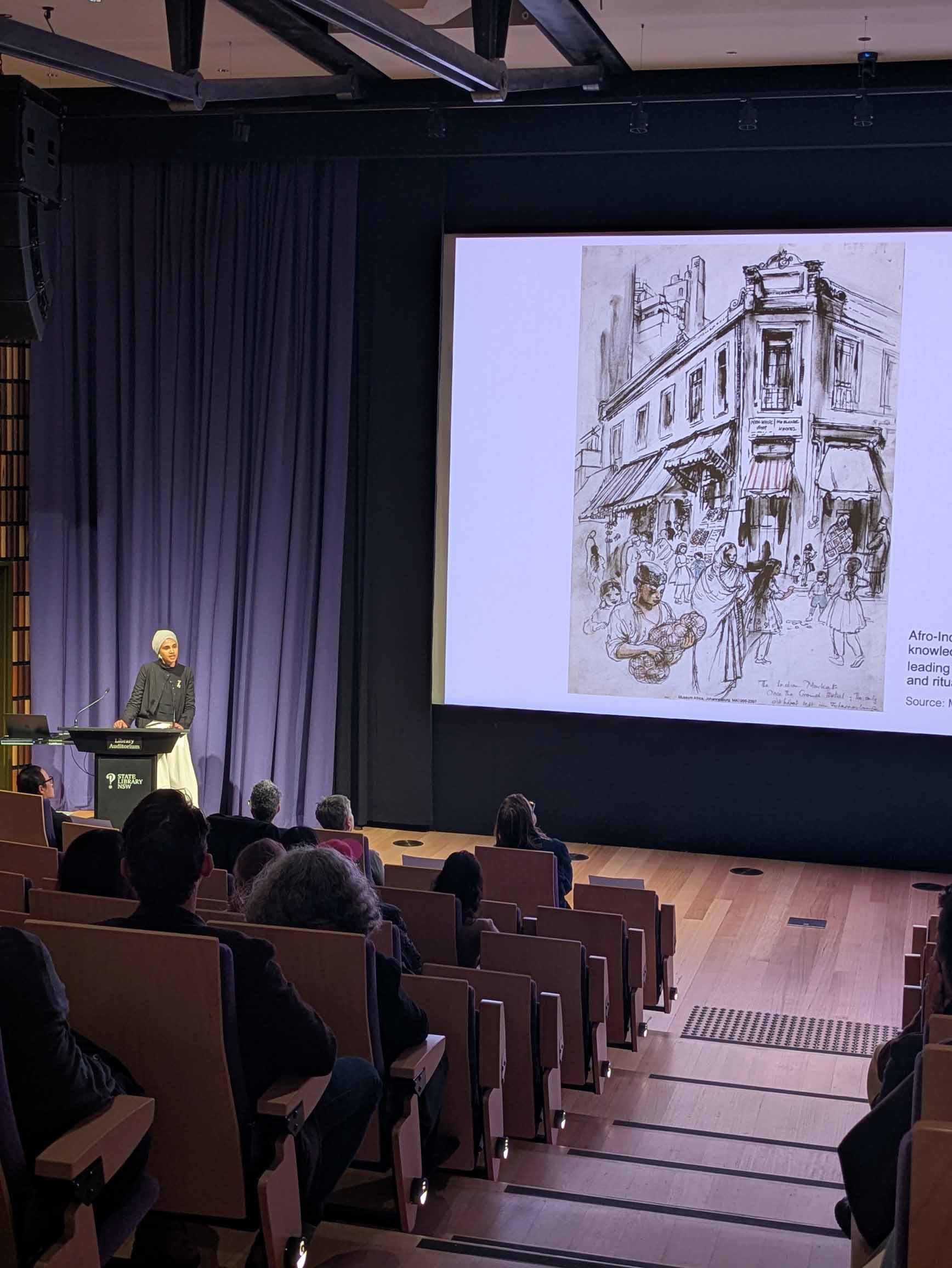
Africa-Asia: A New Axis of Knowledge conference – 11-14 June 2025
Amina presented her work on soft architecture at the Africa-Asia Confest: A New Axis of Knowledge in Dakar, Senegal, as part of the panel titled Complex or Overlooked: The Marginal Communities’ Contributions to Urban Environments.”
The Africa-Asia Confest is an inclusive transnational platform or collective that convenes scholars, artists, intellectuals, and educators from Africa, Asia, Europe, and beyond to study, discuss, and share knowledge on the intricate connections and entanglements between the African and Asian world regions.
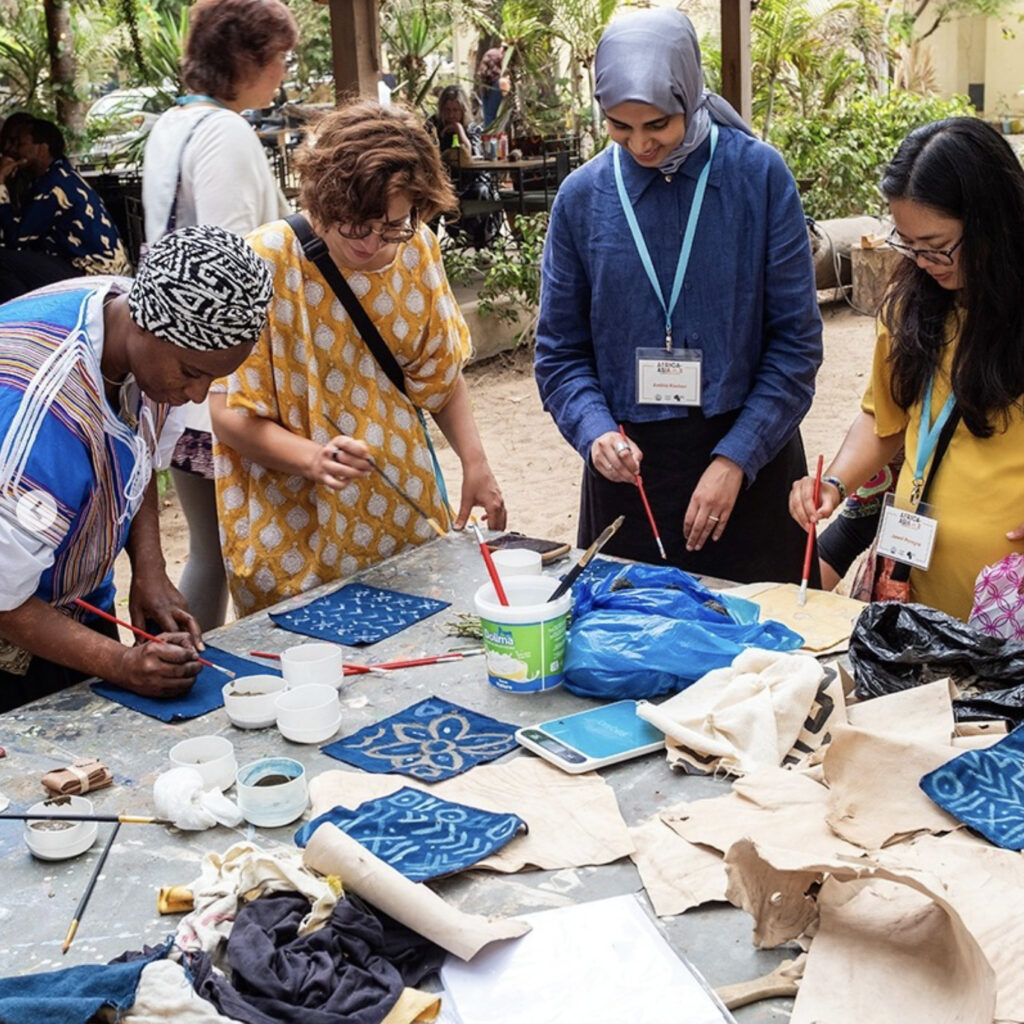
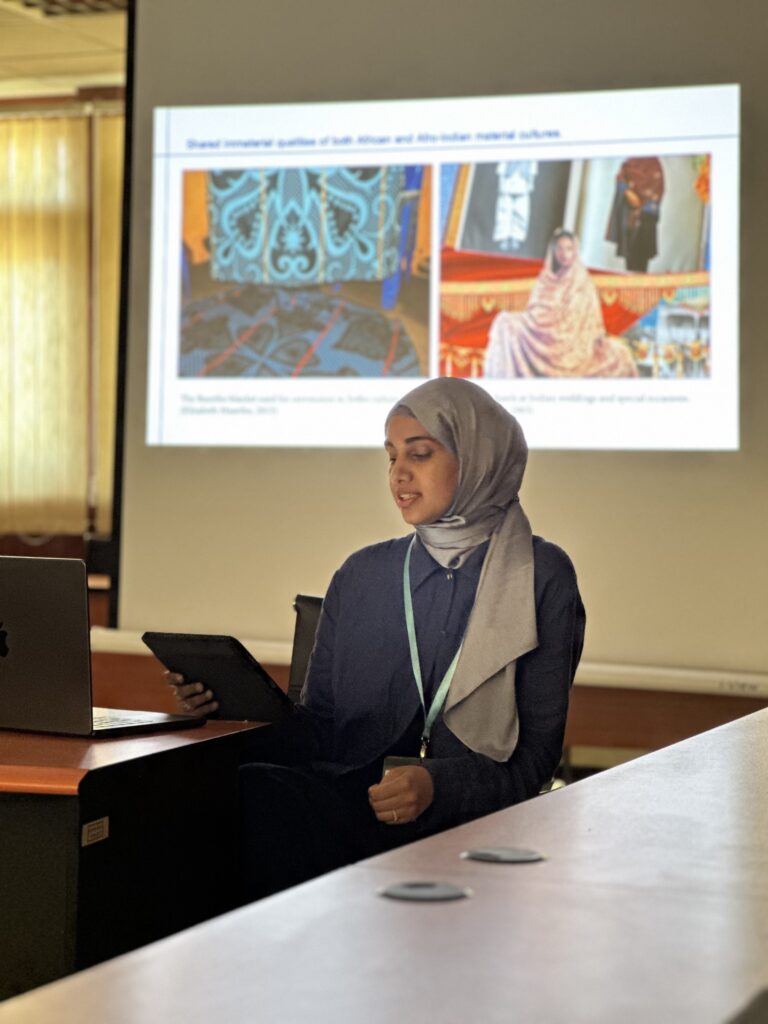
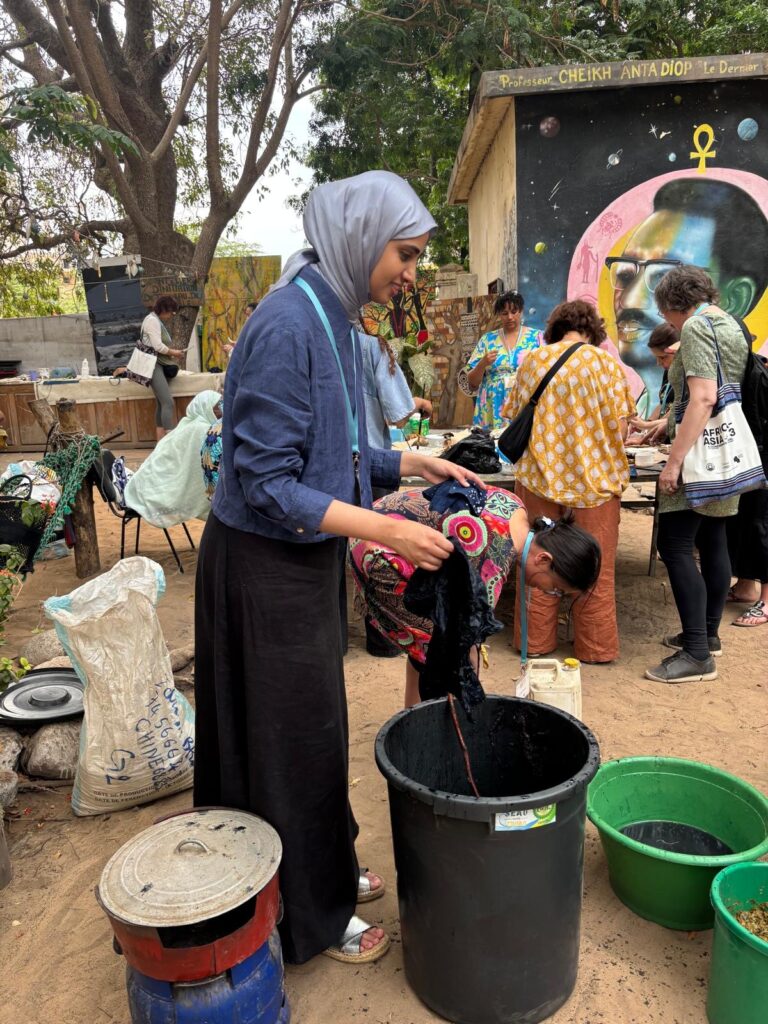
Garage Seminar #2 – June 2025
Amina presented some early writing at the Garage seminar, based on fieldwork conducted in Kamanuma, Tokyo, in 2025. The Garage seminar is convened by previous Rothwell post-doc associate, Hannes Frykholm and offers an informal space to share and discuss ongoing work. The paper is entitled “Urban Rural Commons: Working in the Field” explores the Urban-Rural Commons, a framework developed by Rothwell Co-chairs Atelier Bow Wow, to rethink architecture’s role in ecological and social regeneration. Rooted in the Satoyama landscapes of Japan, where human and natural systems have historically coexisted, this approach resists extractivist logics through collective stewardship and community-led practices.
Fieldwork with Australian architecture students across four sites in Japan investigates how hands-on, multispecies, and seasonal practices—such as scything, bamboo cutting, and cooking—can serve as tools for learning and connection. Extending these ideas to the Australian context, the paper draws on Indigenous understandings of land as living and relational. Ultimately, it proposes an “ecology of livelihood” where architecture becomes an embodied, collaborative practice that supports care, cohabitation, and regenerative futures.
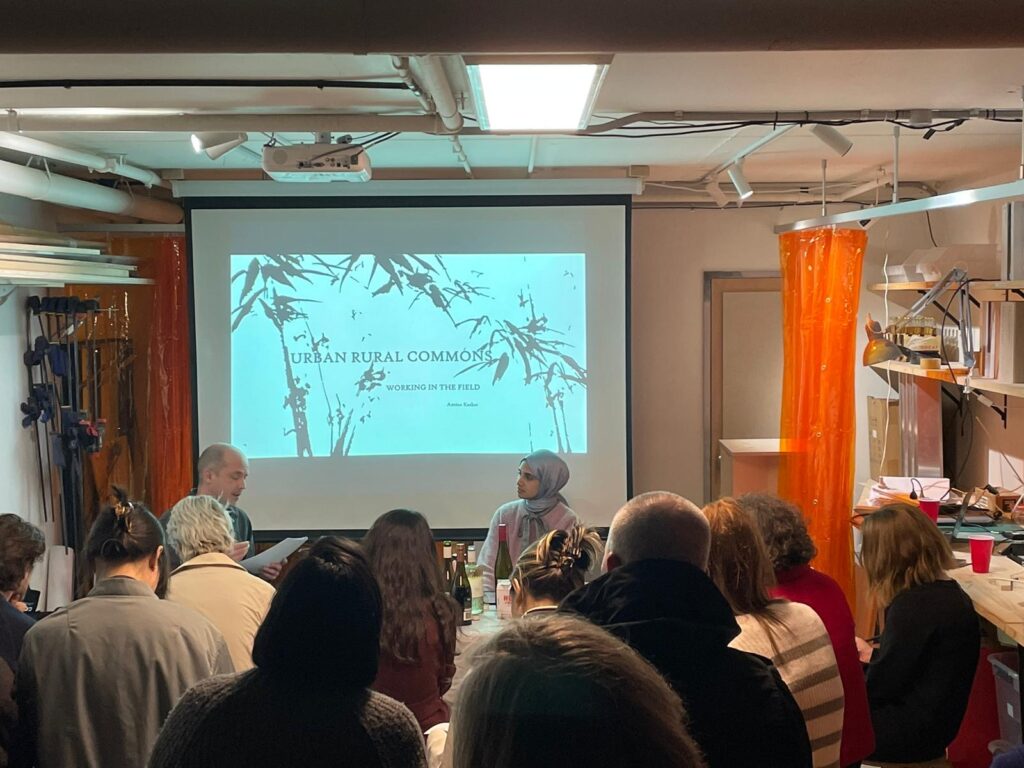
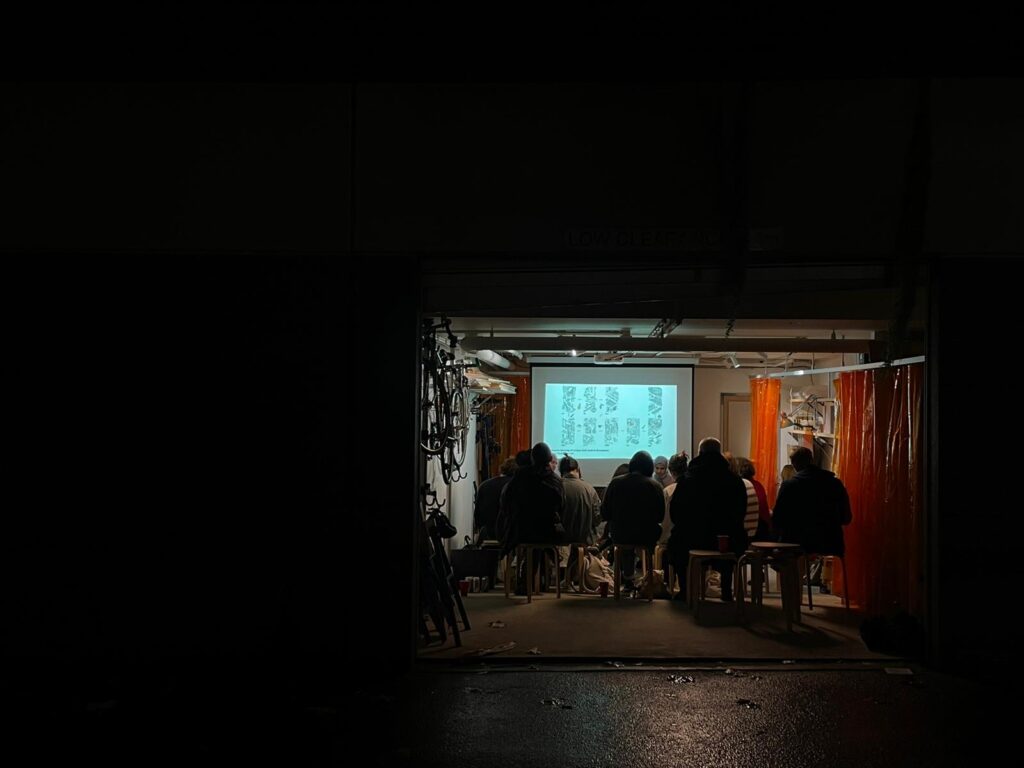
Rothwell Tokyo Travel Elective and Fieldwork Trip 2025
ARCH9114 Rothwell Tokyo Intensive Travel Studio 2025
In January and February 2025, Amina Kaskar co-convened the ARCH9114 Rothwell Tokyo Intensive Travel Studio 2025, led by the inaugural Rothwell co-chairs, Atelier Bow Wow. The studio invited students to explore the theme of urban-rural commons by observing a diverse range of spatial practices that contribute to the creation of shared spaces, helping to blur the boundaries between urban and rural environments. Students visited a variety of sites, including the Small Earth project in Kamanuma Village, where they engaged in hands-on tasks such as scything thatch, cutting bamboo, clearing rice paddies, and preparing an Australian-style BBQ. They also visited other significant locations, including the Koisurabuta Lab, Shimokita Gardening Club, and Kyoto House. Throughout these visits, students documented the agricultural activities, forestry, natural ecosystems and cultural processes involved in working on satoyama – traditional Japanese rural landscapes – paying close attention to how people inhabit, gather, interact and co-exist with nature. Historically, satoyama areas were vital for sustainable living, providing resources like firewood, food, and water, while also supporting biodiversity. In modern times, efforts have been made to preserve and revitalise satoyama landscapes due to their cultural, ecological, and historical significance. This collective work was presented on the final day of the studio at Tsukamoto Lab, where students shared their insights and findings.
Fieldwork Trip 2025
During her research stay in Tokyo, Amina had the unique opportunity to immerse herself in a variety of projects and local communities, which greatly enriched her study of the Rothwell research agenda on the Urban-Rural Commons. She explored architectural and landscape projects, engaging directly with the ways in which rural and urban spaces function as shared commons. Additionally, Amina participated in local activities such as gardening workshops and traditional ceremonies, gaining valuable insights into community-driven practices. Beyond site visits, she conducted interviews, accessed archival data, and had the privilege of interacting with architects, researchers, and residents involved in these projects. Amina also spent time at the Tsukamoto Lab, where she deepened her research on vernacular architecture and observed students working on land rehabilitation and forest maintenance projects in the Kamanuma village.
Read More…
One of the most memorable experiences was her stay at Momonoura Village, a fishing community devastated by the 2011 tsunami. Atelier Bow Wow’s collaboration with the local community played a key role in the village’s rebuilding efforts. Amina was hosted by Mr. Dobashi, a former pilot who relocated to the area as part of the recovery team organized by Momoyo Kaijima. Inspired by the significance of the work, Mr. Dobashi continued to live in the village as a fisherman, embracing the rural lifestyle. The Reborn Art Festival, a vital event in Momonoura, brings together artists, activists, chefs, and locals to celebrate food, fishing, hunting, and craftsmanship. A highlight of Amina’s experience was participating in a meaningful ceremony organised by Nozomu Onodera, a wild deer hunter who draws inspiration from the traditional practices of the Ainu, Japan’s indigenous people. The ceremony, held on Onodera’s land, marked the felling of a cherished Japanese Keyaki tree, which held personal significance and was an important part of the land’s ecological history.
These experiences have profoundly deepened Amina’s understanding of how alternative practices—spanning textiles, food, water, and mobility—can help bridge the divide between urban and rural spaces, fostering stronger communal bonds. The trip has been invaluable in shaping the next steps of her research and in strengthening connections with key collaborators, including Atelier Bow Wow.
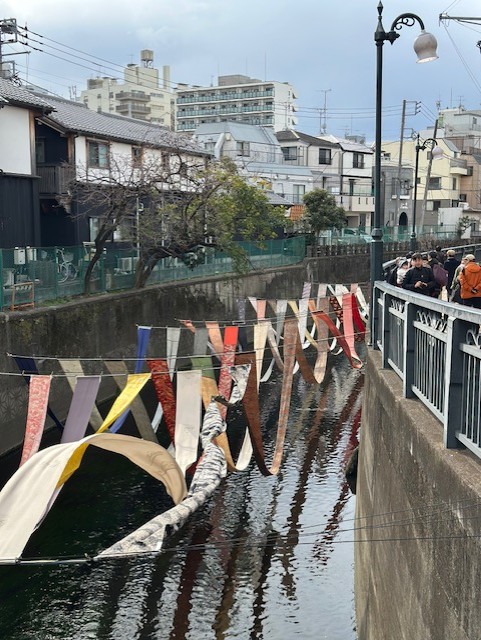
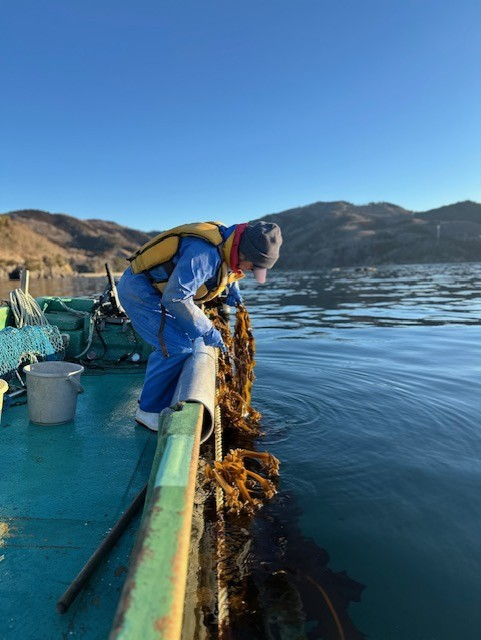
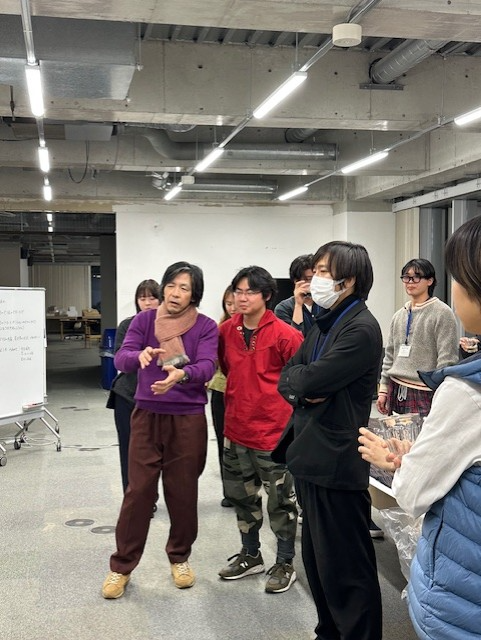
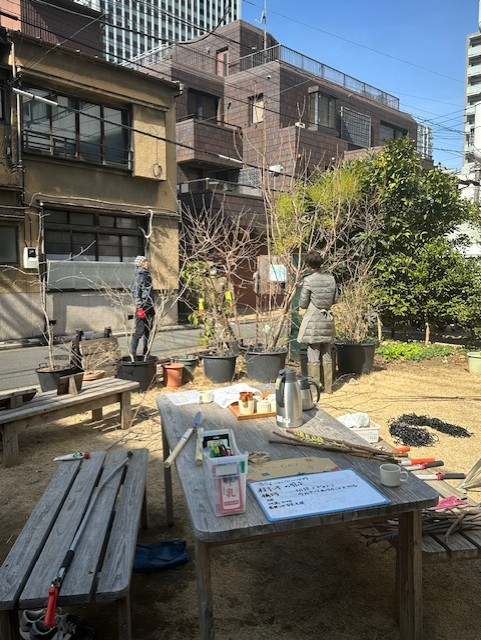
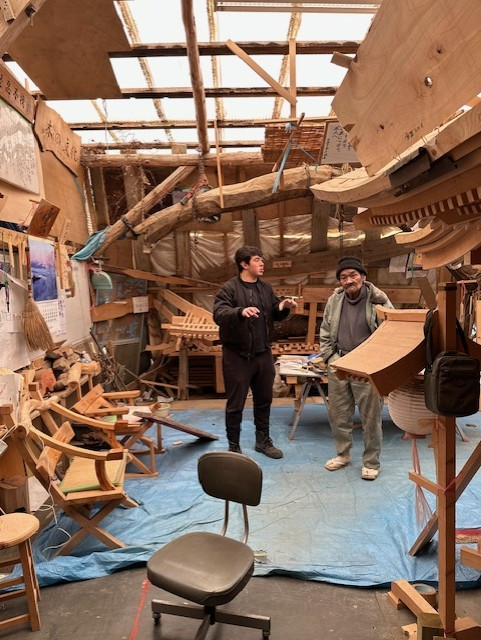
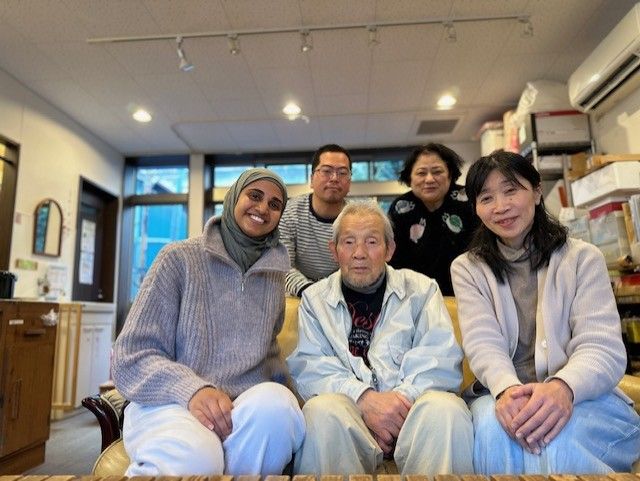
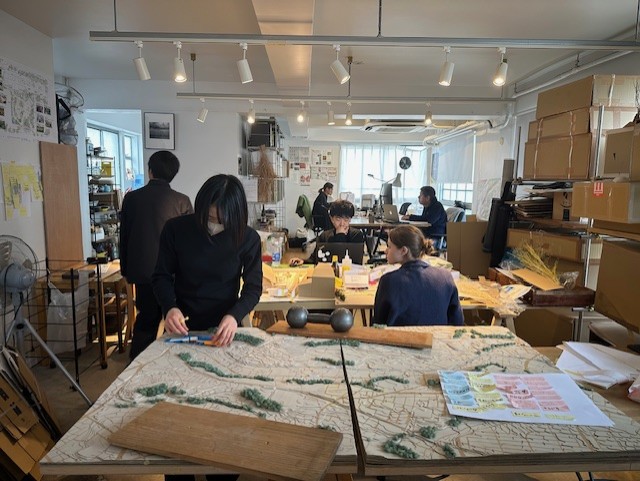
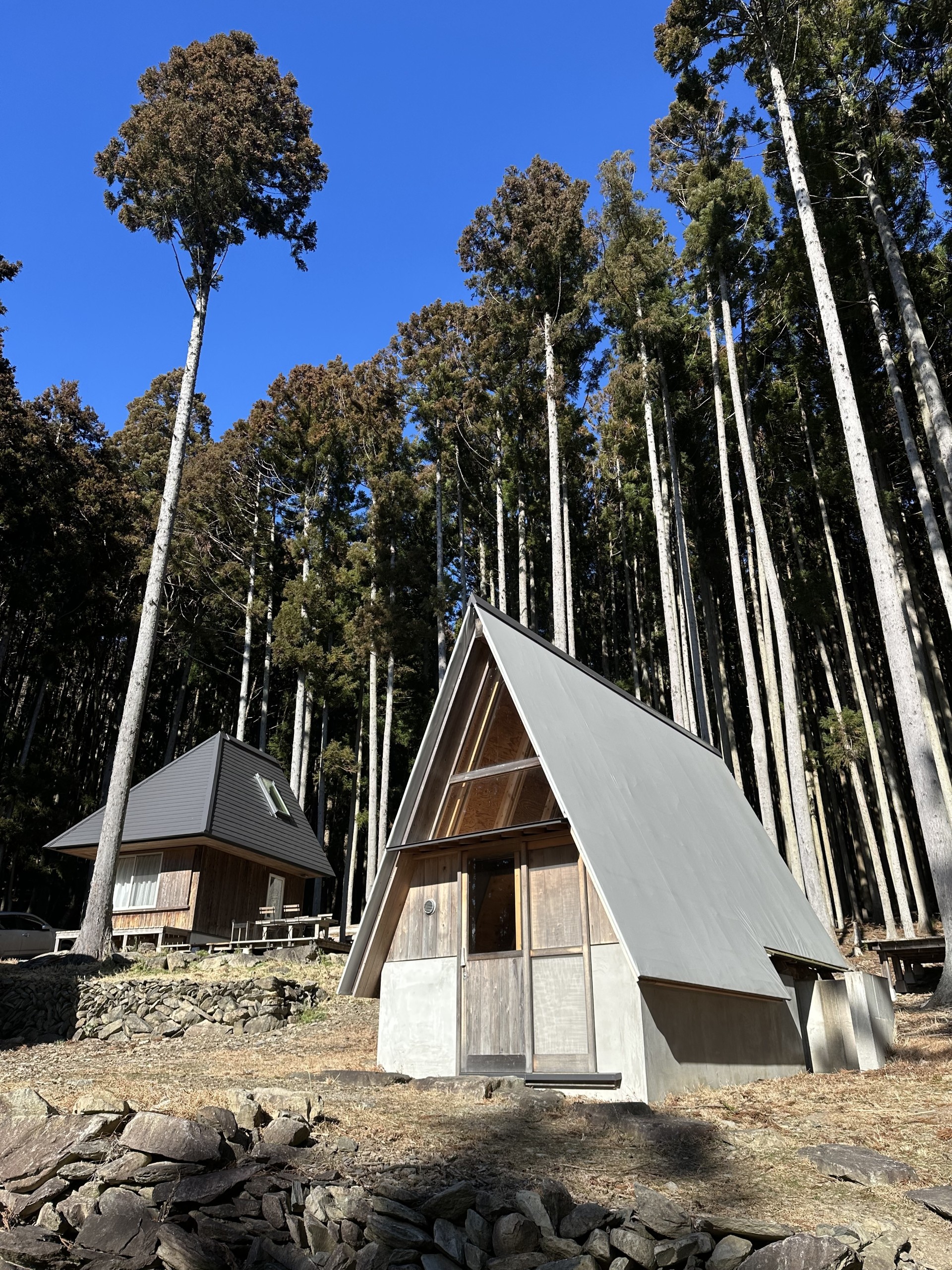
JAE Design Essay Award 2025
Amina Kaskar was awarded the JAE Design Essay award for her paper, “The Indian Delights Cookbook: ‘Infidel Treatise for Soft Spatial practices” for the Journal of Architectural Education special Issues, Infidelities edited by Aya Musmar, Nishat Awan, Menna Agha and Ozayr Saloojee. This work observes the Indian Delights, a beloved cookbook for many South Africa’s Indians, as a “disloyal” or “infidel” treatise for soft spatial practices. The cookbook documents Indian culture through food practices; it is simultaneously a valuable model for recalling practices of resistance within the tensions of racial and customary constraint for Indian women in South Africa in the twentieth century. This text uses visual ethnography to speculate on collective, domestic, and joyful forms of space-making that disrupt the conventional making of architectural form.
LUSI (KU Leuven Urban Studies Institute) Dissertation Award
Amina Kaskar was a finalist for the LUSI Dissertation Award 2024 for her PhD dissertation entitled “Soft Architecture: Afro-Indian Spatial Strategies under Hard Migrations”. This is awarded to the best PhD dissertations in urban studies defended at KU Leuven during 2024. Her dissertation highlights the material spatial practices that accompany conditions of reclamation by migrants in new contexts, specifically those where the hard infrastructures of arrival spaces are a pre-existing and exclusionary frame. Upon entering a hard place of arrival, migrants often create soft architectures that are indicative of the knowledge that communities possess and the daily habits and performances of certain social relations. Within the South African Indian diaspora these collective identities can be made tangible through the tactility of plants, food, and textile. The performative practices layered onto this work activate inclusive and ethical forms of enquiring and visual speculation.
